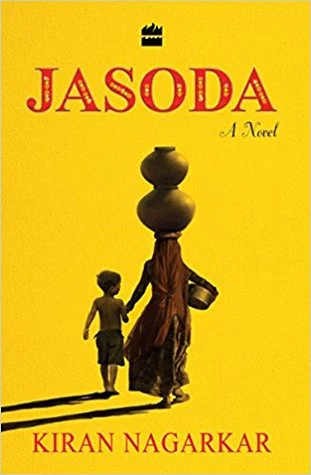Paar, a land often referred to as a mirage, a realm where the boundary between reality and illusion blurs, has been grappling with a relentless drought spanning a decade. In this remote and obscure corner of the world, Jasoda finds herself among the few remaining inhabitants making the exodus from this desolate place. Accompanied by her children and mother-in-law, she departs, leaving behind what is mockingly termed the ‘backside of the world’. Her husband, ostensibly occupied with vital tasks for the local ruler, insists she undertake the journey to the coastal city alone.
In the backdrop of Paar’s transformation from obscurity to the brink of change, Jasoda’s tale unfolds. Her narrative challenges the conventional notion that epic odysseys were relegated to the realms of the Mahabharata, the Odyssey, or the Iliad, and that such odysseys were solely the province of men. As the protagonist of the story, Jasoda stands poised to debunk these assumptions.
Kiran Nagarkar’s narrative is a sharp and incisive account that follows the tenacious path of a woman of unwavering determination and courage. Her journey navigates through a patriarchal, feudal India, a land seldom in the limelight, weighed down by grinding poverty.
“Jasoda” emerges as a novel both compelling and potent, bearing the unmistakable mark of Nagarkar’s storytelling prowess. In its pages, a narrative unfolds that delves into the unscrupulous utilization of power, the ensuing suffering, and the indomitable human spirit that rises above it. Nayantara Sahgal reflects, “Jasoda is as compelling and powerful as Nagarkar’s other novels but uniquely itself in the gut-wrenching story it tells of the sordid uses of power, the suffering it causes, and the human spirit that rises above it.”
Mitali Saran further elaborates, “Nagarkar’s storytelling genius takes us into the abyss of poverty and patriarchy—source of both inspiration and shame. Jasoda’s brutal but transformative journey is the foil to counterfeit historical grandeur. With empathy turned to prose of pure steel, Nagarkar paints a modern Indian heroine.”
A riveting narrative that leaves you breathless until its final pages, “Jasoda” beckons you into the tumultuous world of a woman who may be seen as a mother, a murderer, or even a saint. And yet, she refuses to release your attention, holding you captive until her story reaches its conclusion. Manjula Padmanabhan asserts, “A novel that stops your breath and doesn’t let go until you get to the end. Jasoda: mother, murderer or saint? You’ll want to put her down. But she won’t let you.”
Within this tapestry of storytelling, Kiran Nagarkar’s masterful narrative weaves a compelling saga that intricately captures the dark underbelly of contemporary India, complete with its stark brutality and casual cruelty. “Jasoda” emerges as a tour de force, characterized by razor-sharp observation and profound empathy, encapsulating a modern Indian heroine. Ritu Menon aptly sums it up, “No one can spin a yarn with such rollicking exuberance as Kiran Nagarkar, and no one exposes contemporary India’s dark underbelly, in all its casual brutality, like him. Jasoda is a tour-de-force of razor-sharp observation and profound compassion, brilliantly realized.”









